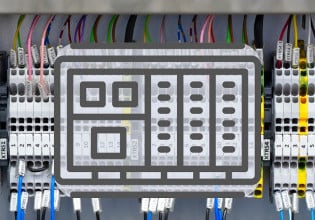C
Hi All
This is in response to several questions I recieved off-list. Some were tactful, some were not. But, regardless, they represent valid
concerns that should be addressed. Threats, by the way, go to /dev/null. There are several misconceptions about the relationship of Linux to OSS in general and concerns regarding IP protection.
1. Doesn't putting our software on Linux force us to open it.
No. The Linux community encourages OSS but doesn't require it. There are provisions for producing closed applications and the code written with those applications would in no way be "forced" open. The GPL is quite clearly written. This has been a popular FUD theme lately, related to the "Destroyer of Intellectual Property" and "Cancer" FUD. If you don't incorporate GPL'd Open Source into your product, there is nothing to worry about. In any case the anti-litageous nature of the Linux community is one of its hallmarks. There is no intent to subvert the wishes of software authors or copyright holders but, instead to protect them. Read the GPL. Decide who is lying about it.
2. How do we make money with a "free" OS.
The same way you make it now. Very few people in our business sell enough MS shrinkwrap to make money. Typically the only folks getting richer from dealings with Microsoft work for Microsoft. While there is a large market for support and repair, for most automation companies this is simply a neccesary evil that comes with supporting their software on the platform. Higher reliability and greater modularity will make your products look better and maximize support staff time spent on _your_ problems. On the other side, low cost, reliable platforms that provide the same solution means a larger bottom line or a more competitive quote, your choice. The bulk of a solution is almost always services, that wouldn't change. Hardware would stay the same or be less in some situations where actual PC control is done. Much more time could be spent on automation issues. An OSS solution will always be more "fixable" making for happier customers.
3. Where are the cost savings?
3. Where are the cost savings?
Everyplace. 1 seat, 10 seats, 100 seats all cost the same for the Linux portion. The incremental cost is simply the hardware cost, which is much redusced for Linux, and the cost to load it. And, yes they can be loaded in bulk. Linux typically runs quickly and well on systems at the "sweet spot" on the pricing curve. I am using a 400 mhz K6 machine as my primary desktop and development machine with no handicap at all and that's not even an entry level machine in the MS world. I have been using this machine for at least the last five versions of Red Hat Linux and I've skipped two or three versions in between. That's a lot more customer friendly than forced upgrades or dog slow systems. And then there's software churn. People are wasting vast amounts of time upgrading stuff that doesn't need to be upgraded. How many times have you had to break something that's running fine because of a meaningless upgrade that provided _nothing_ that matters to the task being done? And if these always went well it would be bad enough, But, an upgrade gone bad is everyone's nightmare and they are far too frequent. Having control over this is a huge cost saver and allows for the type of planning that avoids these disasters. Disconnecting from the "Office Software" upgrade madness is a big plus for everyone. Upgrading on _your_ schedule is a now a realistic option. And no more telling customers thay have to buy the latest and greatest to be able to do anything. A typical Linux installation with all the basic tools and apps costs a lot less on Linux. I operate, as do most people here, with no expensive purchased software at all. Those dollars wouldn't go to you they simply add to what the customer pays. Your application seem a lot less expensive whae the cost of adding users is added up. You can charge a bit more or quote a bit lower, your choice.
To be truthful, there would be an initial learning curve. But, that goes away and the change between versions is now manageable and predictable. I can even use the _same_ interface across version changes because with Linux you have a choice. There are so many burdens that people have to bear that are simply not neccesary once control is wrestled from the folks in Redmond that almost nobody believes how much more serene using a computer all day, every day can be. If computing is a hassle for you
you might be doing it wrong.
Regards
cww
--
Free Tools!
Machine Automation Tools (LinuxPLC) Free, Truly Open & Publicly Owned
Industrial Automation Software For Linux. mat.sourceforge.net.
Day Job: Heartland Engineering, Automation & ATE for Automotive Rebuilders.
Consultancy: Wide Open Technologies: Moving Business & Automation to Linux.
This is in response to several questions I recieved off-list. Some were tactful, some were not. But, regardless, they represent valid
concerns that should be addressed. Threats, by the way, go to /dev/null. There are several misconceptions about the relationship of Linux to OSS in general and concerns regarding IP protection.
1. Doesn't putting our software on Linux force us to open it.
No. The Linux community encourages OSS but doesn't require it. There are provisions for producing closed applications and the code written with those applications would in no way be "forced" open. The GPL is quite clearly written. This has been a popular FUD theme lately, related to the "Destroyer of Intellectual Property" and "Cancer" FUD. If you don't incorporate GPL'd Open Source into your product, there is nothing to worry about. In any case the anti-litageous nature of the Linux community is one of its hallmarks. There is no intent to subvert the wishes of software authors or copyright holders but, instead to protect them. Read the GPL. Decide who is lying about it.
2. How do we make money with a "free" OS.
The same way you make it now. Very few people in our business sell enough MS shrinkwrap to make money. Typically the only folks getting richer from dealings with Microsoft work for Microsoft. While there is a large market for support and repair, for most automation companies this is simply a neccesary evil that comes with supporting their software on the platform. Higher reliability and greater modularity will make your products look better and maximize support staff time spent on _your_ problems. On the other side, low cost, reliable platforms that provide the same solution means a larger bottom line or a more competitive quote, your choice. The bulk of a solution is almost always services, that wouldn't change. Hardware would stay the same or be less in some situations where actual PC control is done. Much more time could be spent on automation issues. An OSS solution will always be more "fixable" making for happier customers.
3. Where are the cost savings?
3. Where are the cost savings?
Everyplace. 1 seat, 10 seats, 100 seats all cost the same for the Linux portion. The incremental cost is simply the hardware cost, which is much redusced for Linux, and the cost to load it. And, yes they can be loaded in bulk. Linux typically runs quickly and well on systems at the "sweet spot" on the pricing curve. I am using a 400 mhz K6 machine as my primary desktop and development machine with no handicap at all and that's not even an entry level machine in the MS world. I have been using this machine for at least the last five versions of Red Hat Linux and I've skipped two or three versions in between. That's a lot more customer friendly than forced upgrades or dog slow systems. And then there's software churn. People are wasting vast amounts of time upgrading stuff that doesn't need to be upgraded. How many times have you had to break something that's running fine because of a meaningless upgrade that provided _nothing_ that matters to the task being done? And if these always went well it would be bad enough, But, an upgrade gone bad is everyone's nightmare and they are far too frequent. Having control over this is a huge cost saver and allows for the type of planning that avoids these disasters. Disconnecting from the "Office Software" upgrade madness is a big plus for everyone. Upgrading on _your_ schedule is a now a realistic option. And no more telling customers thay have to buy the latest and greatest to be able to do anything. A typical Linux installation with all the basic tools and apps costs a lot less on Linux. I operate, as do most people here, with no expensive purchased software at all. Those dollars wouldn't go to you they simply add to what the customer pays. Your application seem a lot less expensive whae the cost of adding users is added up. You can charge a bit more or quote a bit lower, your choice.
To be truthful, there would be an initial learning curve. But, that goes away and the change between versions is now manageable and predictable. I can even use the _same_ interface across version changes because with Linux you have a choice. There are so many burdens that people have to bear that are simply not neccesary once control is wrestled from the folks in Redmond that almost nobody believes how much more serene using a computer all day, every day can be. If computing is a hassle for you
you might be doing it wrong.
Regards
cww
--
Free Tools!
Machine Automation Tools (LinuxPLC) Free, Truly Open & Publicly Owned
Industrial Automation Software For Linux. mat.sourceforge.net.
Day Job: Heartland Engineering, Automation & ATE for Automotive Rebuilders.
Consultancy: Wide Open Technologies: Moving Business & Automation to Linux.






